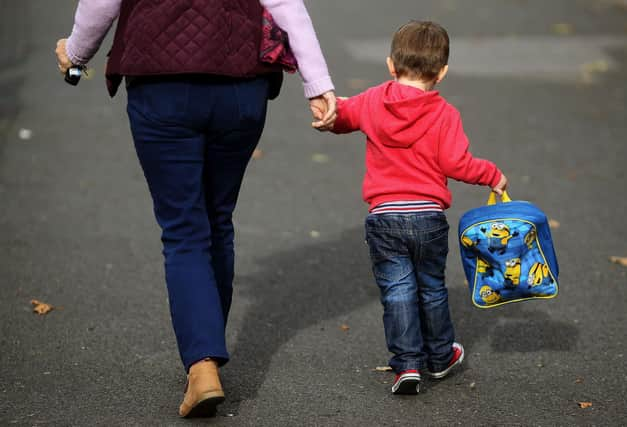MPs' disgust at 'deeply unequal' country after South Tyneside named among worst for child poverty


The End Child Poverty Coalition with Loughborough University has published an analysis of data from the Government that tracks child poverty across Britain before housing costs are taken into account.
Between 2014/15 and 2018/19, the North East of England saw child poverty numbers rise by 6.5%, with all council areas in the region seeing increases.
Advertisement
Hide AdAdvertisement
Hide AdSouth Tyneside MPs have now called on the Government to do more to support families living on the breadline.
South Shields MP, Emma Lewell-Buck, said: “We have long lived in a deeply unequal country, this pandemic was always going to affect those who have been at the sharp end of austerity and government cuts the most.
“Child poverty is entirely avoidable if the political will is there to do so, clearly the stubborn refusal even in the midst of a pandemic to scrap the five week wait for Universal Credit, the benefit cap and two child limit shows once again that this political will doesn’t exist.”
Advertisement
Hide AdAdvertisement
Hide AdJarrow MP, Kate Osborne, added: “A decade of austerity led by consecutive Conservative governments has led to a sharp increase in the number of children living in poverty in the South Tyneside area.
“The Government must commit to a strategy of ending child poverty, which includes an end to zero-hour contracts, an introduction to free school meals for all primary school children, tackling the cost of school uniforms, and scrapping Universal Credit, the benefit cap and the two child limit, which has forced parents and carers to visit food banks in order to feed their children.
“One child in poverty is one too many.”
The child poverty figures are based on government estimates using family income data.
In 2018/19, the worst hit area in the North East was Middlesbrough where more than a third (37%) of children were living in poverty, before housing costs are taken into account, closely followed by Newcastle (28%), Hartlepool (27%), and South Tyneside (26%).
Advertisement
Hide AdAdvertisement
Hide AdThe End Child Poverty Coalition is now calling on the Government to commit to a comprehensive strategy to end child poverty as it plans the nation’s recovery from coronavirus, which campaigners fear could draw more families below the poverty line.
Groups have also called for the Government to increase household income for struggling families.
Director of policy and campaigns at Action for Children, Imran Hussain, said: “We may all be experiencing the storm of coronavirus together, but we are not all in the same boat.
“Children in the North East are some of the most exposed to the devastating economic consequences of this crisis and are at severe risk of being swept deeper into poverty.
Advertisement
Hide AdAdvertisement
Hide Ad“Families who were already struggling to keep their heads above water are now living in fear that they can’t afford to keep their children and babies warm and well fed.”
A Government spokesman said: “This government understands the challenges many are facing which is why we injected £6.5 billion into the welfare system, including increasing Universal Credit and Working Tax Credit by up to £1,040 a year, as well as rolling out income protection schemes, mortgage holidays and additional support for renters.
“We currently spend a record £95 billion a year on our safety net welfare system and remain committed to supporting the most vulnerable in society throughout the current emergency and beyond.”
Recent analysis from the Office for National Statistics, carried out between April 17-27 2020, shows just under 1 in 4 adults (23%) said coronavirus was affecting their household finances.
Advertisement
Hide AdAdvertisement
Hide AdThe most common impact in this group was reduced income and nearly half said they had needed to use savings or borrow to cover living costs.